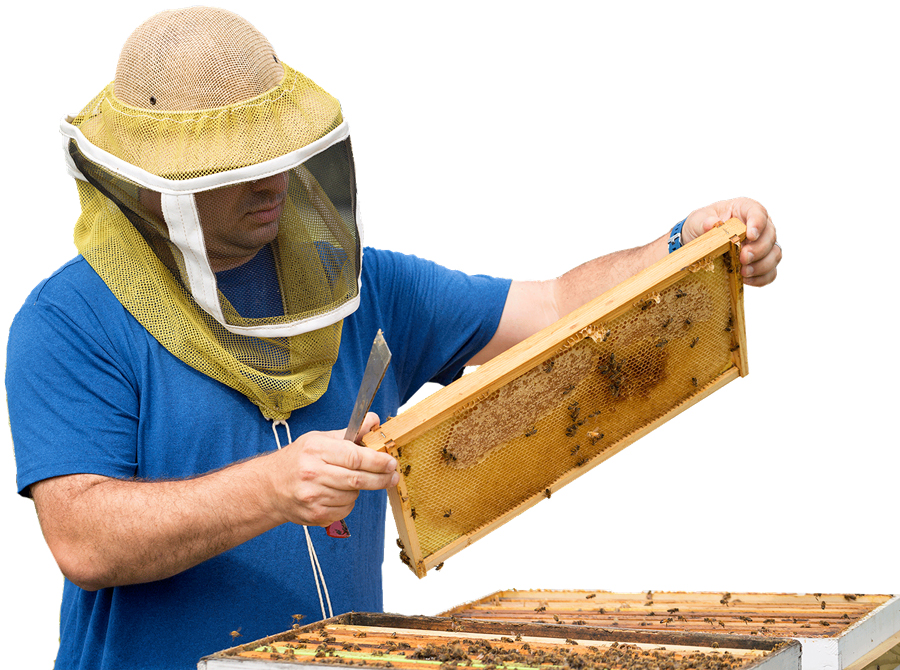Helping Bees and Beekeepers
August 11, 2020
The Sweetest State in the South
Many of the foods we eat rely on bees transferring pollen from male to female parts of plants, ensuring their reproduction. Bees pollinate about 35% of the world’s crops. They also help pollinate up to 95% of all flowering plants, support healthy ecosystems that clean the air, stabilize soils, and guard us from severe weather. This is why LSU researchers are working on multiple projects to protect them. One of those researchers is Thomas O’Shea-Wheller at the LSU AgCenter. He’s trying to determine the causes of honeybee colony loss so he can help prevent them. Just in the last year, more than one in six colonies in Louisiana died.
Bee populations have been in sharp decline in recent years and no one is more aware of this than Louisiana’s nearly 1,000 commercial beekeepers working in 48 of the 64 parishes. Many of them have seen honey prices plummet in recent years despite growing demand. Part of the reason for the price drop is that we import more honey than we produce and because honey ranks third in global food fraud, behind olive oil and milk, ahead of saffron, orange juice, and coffee. To protect honest beekeepers, LSU Alexandria chemist Gerard Dumancas is developing a smartphone app to help distinguish pure honey from diluted products that contain corn, sugarcane, beet, or rice syrup. He is also gathering hundreds of honey samples from around the world to build a database of geographical fingerprints that he then will translate into a new set of algorithms so app users can tell exactly where the honey they’re buying comes from.

LSU works to protect honest beekeepers.
– Adobe Stock
“We import more honey than we produce in the United States. Prices should be going up with demand, but American beekeepers have seen prices significantly lowered in just the last couple of years. The U.S. honey industry wants to ensure all honey in the marketplace is authentic and meets industry standards, which is why we formed a Honey Integrity Task Force. The technology developed by Dr. Dumancas at LSU of Alexandria can potentially help augment current analytical tests to protect our industry, beekeepers, and consumers.”
Gene Brandi, Owner of Gene Brandi Apiaries, past president of the American Beekeeping Federation, and former chairman of the National Honey Board


